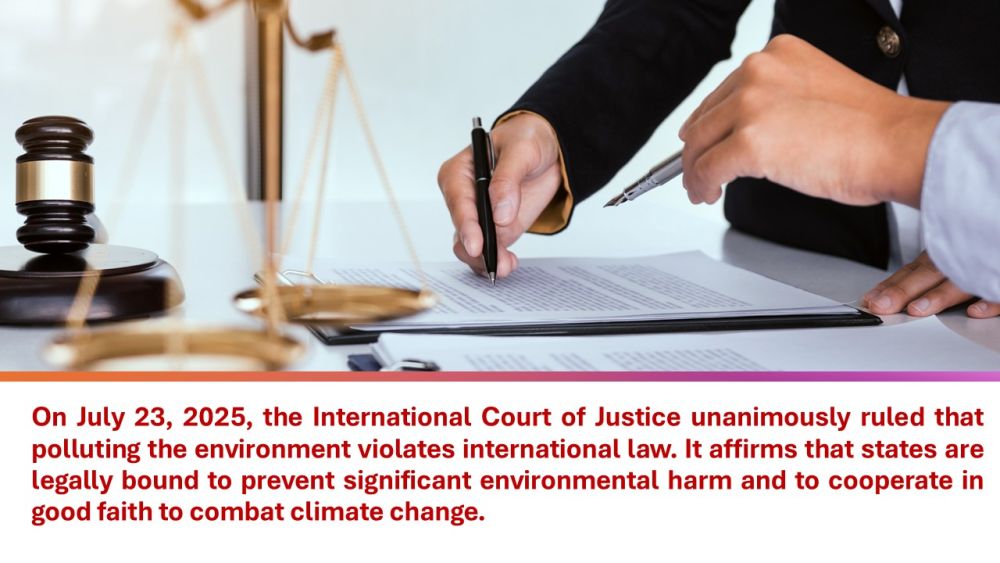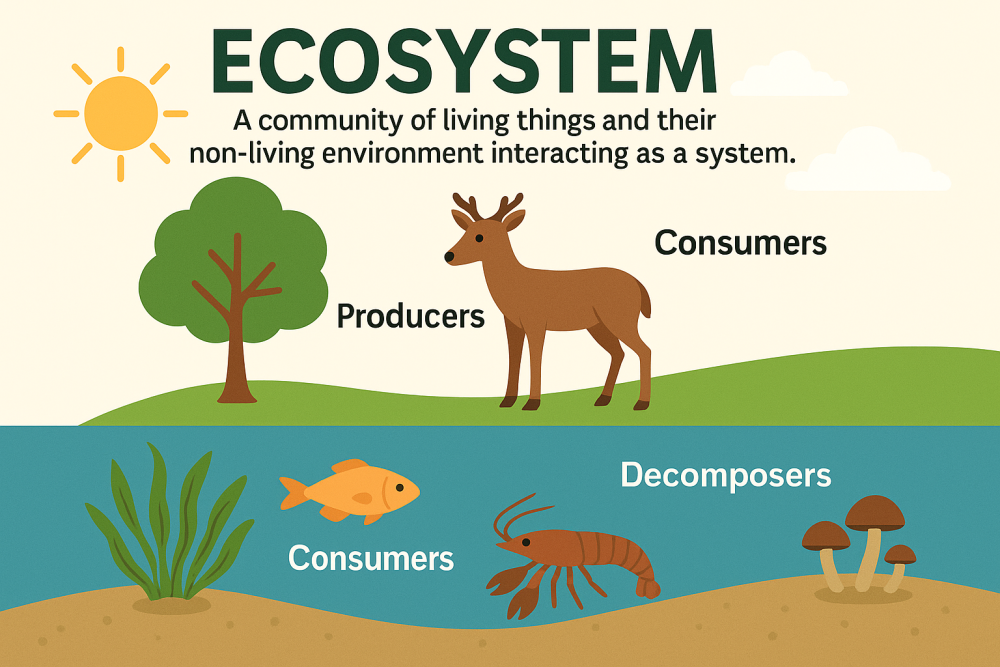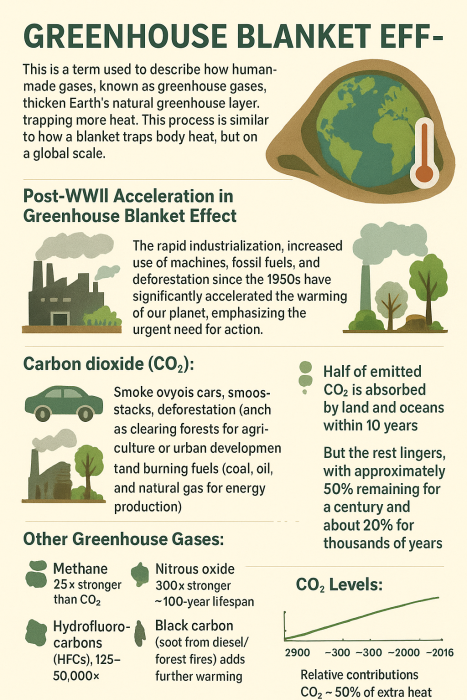33/25 The World's Top Court Sounds the Climate Alarm and It's Legal
Posted 5 months ago
On July 23, 2025, the United Nations' highest court, the International Court of Justice (ICJ), delivered a unanimous, historic advisory opinion: Countries now have legally binding duties under international law to curb climate change and protect current and future generations.
Who Went to Court for the Clean Environment?
- In response to a 2019 student-led campaign from Vanuatu, the United Nations General Assembly referred two questions to the ICJ: What are the legal obligations of States to protect the climate today and tomorrow? And what are the consequences if they fail to do so, particularly for the most vulnerable countries?
- After an unusually large level of participation, 91 written statements, 96 countries, and 11 international organizations participating in the hearings, the ICJ made its message clear: failing to act on climate change could now be seen as breaking international law. This could lead to required reparations, such as paying compensation or restoring damaged ecosystems, if it can be proven that inaction directly caused the harm.
Why Environment Matters?
- The opinion elevates a clean, healthy environment to the status of a human right, not just policy, but a legal obligation.
- It redirects climate accountability from voluntary pledges to enforceable law, potentially influencing courts, policymakers, and investors worldwide.
- Nations that once leaned on treaty loopholes like the Paris Agreement's focus on domestic emissions can no longer hide. The ICJ affirmed that general international law and customary norms still apply, making countries accountable for pollution, including from fossil fuel exports and subsidies.
The Backstory: From Island Hope to Global Shift
- It all began with climate-conscious students in Vanuatu (Island in South Pacific Ocean) forming a group called Pacific Island Students Fighting Climate Change. They convinced their government and over 130 states to press the UN General Assembly for clarity.
- That grassroots drive ultimately sparked the largest-ever case in ICJ history, marked by its depth, breadth, and unanimous verdict.
An Unprecedented Decision Saving Human Lives
While advisory opinions don't come with courtroom gavel power, this redefines climate norms. It's already influencing legal battles, shaping policy debates, and prompting calls for climate accountability morally and legally.
For businesses and leaders, the implications of the ICJ's ruling are clear: the era of treating climate action as an optional cause is over. With the ICJ reinforcing that inaction may be illegal, the question is no longer if climate strategy matters; it's how quickly your organization can adapt to these new legal realities. The global community is now on notice, and the time for action is now.




